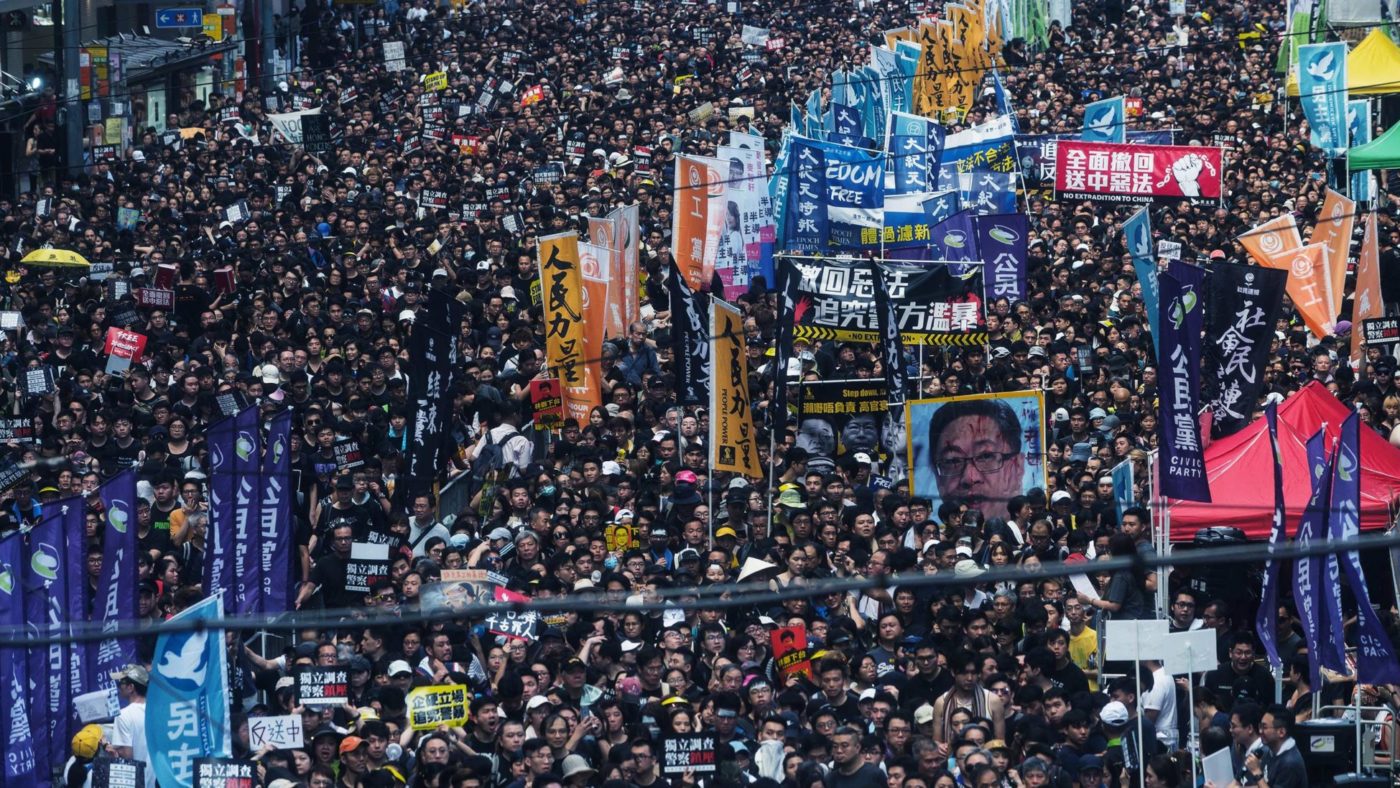The people of Hong Kong have been magnificent. Up to 2 million of them came out on to the streets to protest. They were peaceful and brave. They won the admiration of the world. And they won their battle.
There was no certainty that Carrie Lam, the Chief Executive of the Hong Kong Government, with the support of the Chinese Government, would back down and withdraw the Extradition Bill. Giving in to popular demands has destroyed Lam’s authority and represents the severest setback for Xi Jinping since he became Leader of China seven years ago.
They gave in partly because of the enormous crowds in the streets but also because, for once, the people had the public support of Hong Kong’s conservative business community, usually either pro-Beijing or too nervous to put their heads above the parapet.
It took the prospect of Hong Kong businessmen finding themselves being extradited to mainland China to face arbitrary and harsh Chinese justice for them to find their backbone and support their fellow citizens on the streets.
But if I am full of admiration for the people of Hong Kong who forced Carrie Lam and her masters in Beijing to bend the knee I cannot give unqualified support to those Hong Kongers who occupied and vandalised the Legislative Council.
Their desire to express their criticism of the Chinese Government on the day of the anniversary of Two Systems in One Country was understandable. Although Hong Kong still enjoys many freedoms that the citizens of the mainland can only dream of, Beijing has been seeking, with some success, to erode the autonomy of Hong Kong almost from the day in 1997 that the British colony reverted to China.
But it was foolish of the demonstrators to force their way into the parliament building, behave like vandals, and cause serious damage to the parliamentary chamber. It has not only outraged the authorities – most of the population of Hong Kong are unlikely to have been impressed either, and the international community will be less supportive of their cause.
We in the UK are not merely spectators of the Hong Kongers’ victory over the hated Extradition Bill. The British Government, together with the Chinese, were the co-signatories of the Treaty establishing Two Systems in One Country, an agreement that has been deposited with the United Nations. The absence of an Extradition provision in the Treaty was not an unintended omission, as Carrie Lam argued. There was never any question of allowing Hong Kongers to be extradited to a China, where an independent judiciary does not exist. China, sadly, has Rule by Law not the Rule of Law.
Of course there is little the UK can do to force the Chinese government to stop eroding Hong Kong’s autonomy. But we can at least warn China that any repudiation of Two Systems would destroy the prospect of a close partnership between our two countries, which has been a serious objective of both countries for a number of years. While we would lose valuable exports and potential foreign investment, we could not live with ourselves if we abandoned Hong Kong to its fate.
To her credit, Mrs May did not hesitate to accept a serious deterioration in our relations with Russia when Kremlin-approved GRU agents poisoned Mr Skripal and his daughter in Salisbury. Boris Johnson or Jeremy Hunt will be expected to show the same leadership and courage if that is needed to help save the liberty of the people of Hong Kong.
It is worth noting that in fighting to preserve democracy and the rule of law in Hong Kong its people are not only championing their own freedom but showing how false and unconvincing are Xi Jinping’s assertions that “Western” values are not suitable or relevant for the Chinese or the people of Asia as a whole.
The Chinese government like to believe that because the struggle for democracy and the rule of law began in Europe they represent a system of government only suitable for Europeans and not to be sought by the Chinese.
It is a profoundly unconvincing argument. One might as well say that because Christianity and Islam were founded in the Middle East these religions are not suitable for Europe, Africa or elsewhere in Asia.
This is not just a theoretical argument. China’s own neighbours in Asia, years ago, adopted democracy and the rule of law and are thriving as a result. Japan, South Korea, Taiwan and Indonesia were all authoritarian states that have no desire to return to those bad old days. India, soon to overtake China as the most populous country in the world, has had a healthy democracy and the rule of law since it won its freedom from Britain over 70 years ago.
So the citizens of Hong Kong are not fighting for “Western” values but for universal values that are already enjoyed by most of China’s Asian neighbours, most significant of whom are the 23 million ethnic Chinese who live in Taiwan.
One day democracy and the rule of law will come to mainland China. For the time being it falls to the Chinese in Hong Kong and Taiwan to be its champions. Long may they flourish.
CapX depends on the generosity of its readers. If you value what we do, please consider making a donation.


